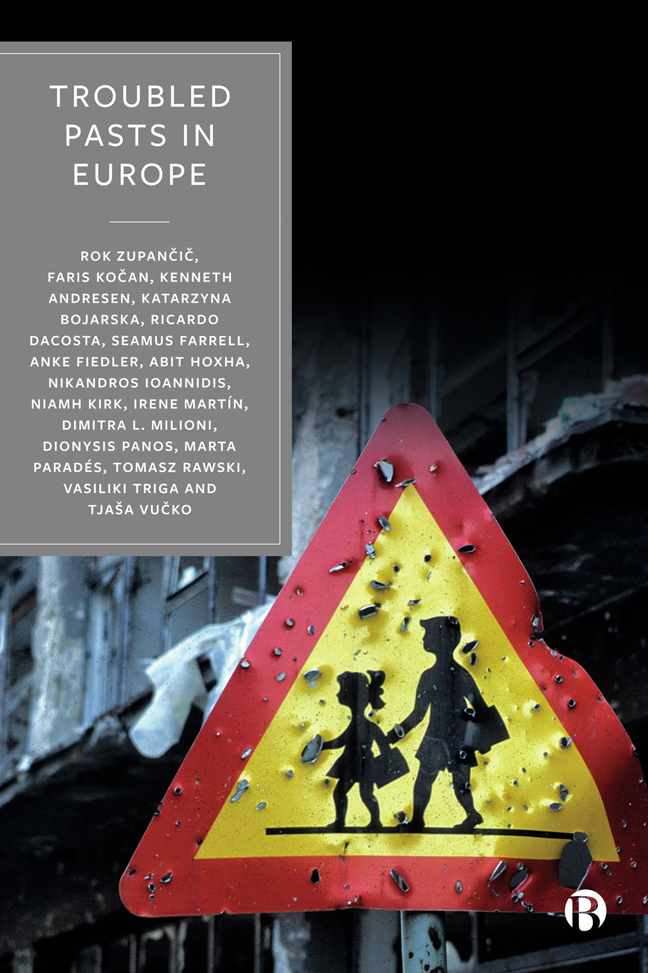 Troubled Pasts in Europe
Troubled Pasts in Europe Published online by Cambridge University Press: 25 January 2024
Introduction
Since the signing of the Good Friday Agreement (GFA) in April 1998, Northern Ireland (NI) has experienced a degree of transformation and has made substantial progress in many areas in terms of peacebuilding, community cooperation, enhanced economic growth, inward migration and outward engagement with the international community. While the Troubles may have officially ended more than 20 years ago, the legacy of the conflict remains to this day. Collective and individual traumas are still present along with continued community divisions. Unionist and republican communities have yet to find consensus on a range of issues, including the release of political prisoners and parades, as well as annual issues stoking cross community tensions such as the 12 July bonfires commemorating the victory of Protestant King William of Orange over the Catholic King James in 1690. The emergence of a new Irish Republican Army (IRA) paramilitary and the political party Saoradh, perceived to be their political wing, has been a new factor raising tensions. Communities face new challenges such as the decision for the UK to leave the European Union (EU), despite the North largely voting to remain. The need for peacebuilding initiatives within NI and cross-border cooperation between the North and South of Ireland is ongoing. As well as concerns about the potential for the reintroduction of the border creating high level political tensions at a state level, the Brexit referendum highlighted continued divisions within NI. The resurgence of nationalism among the loyalist and republican communities and the expression of their allegiance to the UK and the Republic of Ireland respectively are seen in the continued debates between the place of NI in the UK and the calls for a border poll to vote for a reunification with Ireland. There are concerns that the political divisions could percolate down through the population and provoke an increased division at a community level, that if unaddressed could result in a return of inter-community violence.
Our research into the challenges faced by organizations in NI and Ireland as they deal with the legacy of the Troubles revealed a number of initiatives in place. These seek to identify opportunities for further cooperation, integration, social and economic justice, healing from wounds and inter-state cooperation.
To save this book to your Kindle, first ensure [email protected] is added to your Approved Personal Document E-mail List under your Personal Document Settings on the Manage Your Content and Devices page of your Amazon account. Then enter the ‘name’ part of your Kindle email address below. Find out more about saving to your Kindle.
Note you can select to save to either the @free.kindle.com or @kindle.com variations. ‘@free.kindle.com’ emails are free but can only be saved to your device when it is connected to wi-fi. ‘@kindle.com’ emails can be delivered even when you are not connected to wi-fi, but note that service fees apply.
Find out more about the Kindle Personal Document Service.
To save content items to your account, please confirm that you agree to abide by our usage policies. If this is the first time you use this feature, you will be asked to authorise Cambridge Core to connect with your account. Find out more about saving content to Dropbox.
To save content items to your account, please confirm that you agree to abide by our usage policies. If this is the first time you use this feature, you will be asked to authorise Cambridge Core to connect with your account. Find out more about saving content to Google Drive.